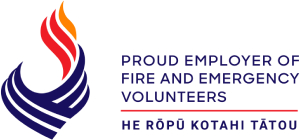Introduction:
Our front-line staff, including emergency responders, healthcare workers, law enforcement officers, and military personnel, are everyday heroes who courageously face challenging and traumatic situations in the line of duty. While their commitment to serving and protecting our communities is commendable, the toll of their experiences can be profound, leading to a condition known as Post-Traumatic Stress (PTS). In this blog, we delve into the impact of PTS on our front-line staff and discuss the importance of providing comprehensive support and resources to promote their mental well-being.
The Reality of Trauma:
Working on the front lines means exposure to traumatic events, life-threatening situations, and witnessing the distress of others. These experiences can leave a lasting emotional impact on our dedicated front-line staff. PTS can manifest differently in individuals, ranging from intrusive memories, nightmares, and hypervigilance to emotional numbing, avoidance, and changes in behaviour.
Recognising the Signs:
It is essential for colleagues, supervisors, and organisations to recognise the signs of PTS in our front-line staff. Common signs include irritability, withdrawal from social interactions, difficulty sleeping, and a decline in job performance. However, it is crucial to remember that not everyone may exhibit visible signs, making open communication and regular mental health check-ins vital.
The Stigma Surrounding PTS:
Despite growing awareness of mental health issues, there remains a stigma around PTS, which can prevent our front-line staff from seeking help. It is imperative to create a supportive culture that encourages open conversations about mental health and emphasises that seeking assistance is a sign of strength, not weakness.
Providing Comprehensive Support:
1. Mental Health Training: Offer regular training sessions that raise awareness about PTS, its effects, and coping strategies. Educate staff on the importance of early intervention and seeking professional help.
2. Peer Support Programs: Establish peer support networks within organisations to encourage colleagues to share their experiences and provide empathetic support to one another.
3. Trauma-Informed Leadership: Train supervisors and managers to recognise and respond to signs of PTS in their team members. Foster an environment where mental health concerns are treated with compassion and understanding.
4. Access to Professional Resources: Ensure that mental health resources, such as counselling services and support hotlines, are easily accessible and well-publicised. Destigmatise the use of these resources within the organisation.
5. Self-Care and Resilience Building: Encourage front line staff to prioritise self-care activities that promote physical and mental well-being. Offer resilience-building workshops that equip them with coping mechanisms to navigate the challenges they face.
The average person is somewhat aware of PTS and its effects. We hear of people over-coming immense grief from dreadful experiences, from our emergency personnel seeing things no one should ever have to see, TV and social media portraying the inhumanity of man and, of course the destruction of nature.
Most of us are incredibly fortunate that we have not been in the situation where we may just shut ourselves off from reality for a few weeks/months, stop caring about anything or anyone, drink until we drop or medicate until the world just stops existing. These are the ways that I am aware of that my friends have used to cope.
Conclusion:
Our front-line staff play a vital role in safeguarding our communities and often shoulder tremendous emotional burdens in the process. It is our responsibility as a society and organisations to prioritise their mental well-being. By fostering a culture of support, empathy, and understanding, we can create an environment where front line staff feel safe to seek help when needed and build resilience to cope with the challenges of their noble profession. Together, let us stand united in supporting those who dedicate their lives to serving others.
Back to Blog








